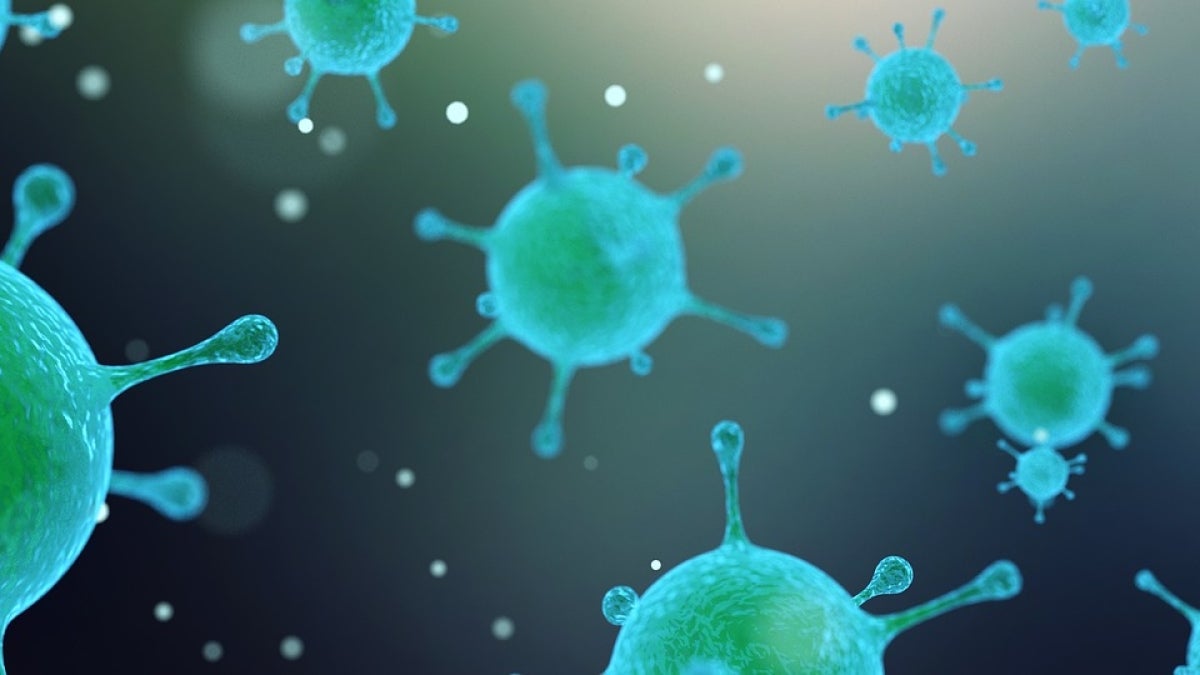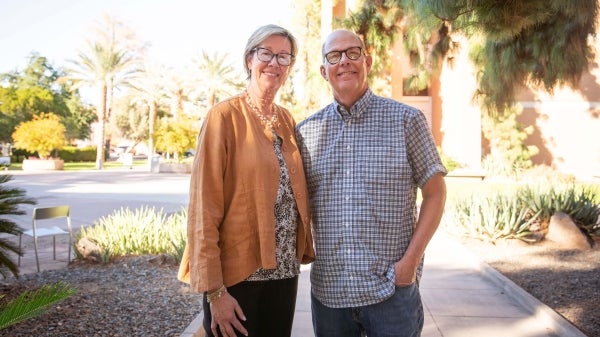ASU hosts biosecurity conference on synthetic viruses, DIY biology, disaster preparedness

In 2002, virologist Eckard Wimmer led a team at the State University of New York at Stony Brook that created a live polio virus from chemicals, using internet information and mail-order DNA.
The work was funded by the Pentagon. The military was interested in developing biowarfare countermeasures. Wimmer, distinguished professor of molecular genetics and microbiology, received death threats and was called “Frankenstein.” A Texas congressman introduced a resolution condemning the journal that published the study, calling it a “blueprint on how to create for release human pathogens on the American people.”
All viruses can be synthesized in the absence of a natural template, Wimmer said.
“That’s very scary,” he said. At the same time, he added, “No, you cannot go into a garage and make a smallpox virus.”
The Arizona Biosecurity Workshop held Dec. 5-6 at Arizona State University was attended by a diverse group of people ranging from scientists to FBI agents and first responders. The discussions were just as diverse, ranging from safety, to ethics, to new innovations.
“We’re looking forward to a couple of exciting and interesting days,” said ASU’s Jamie Winterton, director of strategy for the university’s Global Security Initiative.
The two-day event focused on more than synthetic viruses. Do-it-yourself biology, disaster preparedness, ethical quandaries in biotech and bio information security were other themes. This year’s workshop marks the fourth consecutive year of it being held on the ASU Tempe campus.
“Partnership is key to our success,” said Daniel McGee, the FBI special agent in charge of counterterrorism operations in Arizona. “Weapons of mass destruction threats have the potential for major disruption at a national level-the effect could be catastrophic.”
It’s not that easy to create a synthetic virus, said David Evans, an expert in medical microbiology and immunology from the University of Alberta who synthetically recreated the extinct horsepox virus. There are significant technical challenges. Evans described failures he has experienced.
“This could be done by a state actor,” he said, “but I assure you it’s not something you can do in your garage.”
“The FBI wants everyone from academia to the DIY communities to be security-aware when it comes to threats from people looking to do harm,” said Philip Bates, supervisory special agent with the agency.
“Through biosecurity workshops like this, we can raise awareness and educate various communities about the importance of biosafety and biosecurity,” Bates said. “This is a community effort and the important relationships built during this conference will help in this effort.”
The FBI’s 56 offices nationwide reach out to colleges and universities, the private biotech sector, DIYers and others. Their concerns include academic espionage, insider threats and chemical security.
“Biosecurity is not a new concept, but it is an emerging concern,” Bates said. “But, to be clear, the FBI is in no means trying to deter or impede innovation — it's quite the opposite. We are working to protect assets and interests that impact U.S. national security.”
The conference was co-sponsored by the FBI and ASU’s Watts College of Public Service and Community Solutions.
“You should all read 'Frankenstein,'” Wimmer said. “It’s a remarkable book.”
Top photo by Pixabay
More Science and technology

How a childhood passion led Jim Bell to being named an ASU Regents Professor
In the early 1970s, in a rural town in the smallest state in the U.S., a young boy in elementary school began to imagine the wonders of space travel.Jim Bell sat in the living room of his family’s…

Alum's journey to leadership shows the power of lifelong learning
In 1976, Kathy King was among a minority when a high school teacher advised her to pursue chemical engineering at Arizona State University.“Mechanical and electrical engineering were popular, but I…

3 ASU faculty members earn highest honor for early-career scientists, engineers
Three faculty in The College of Liberal Arts and Sciences at Arizona State University have been awarded the Presidential Early Career Award for Scientists and Engineers, or PECASE, by former…